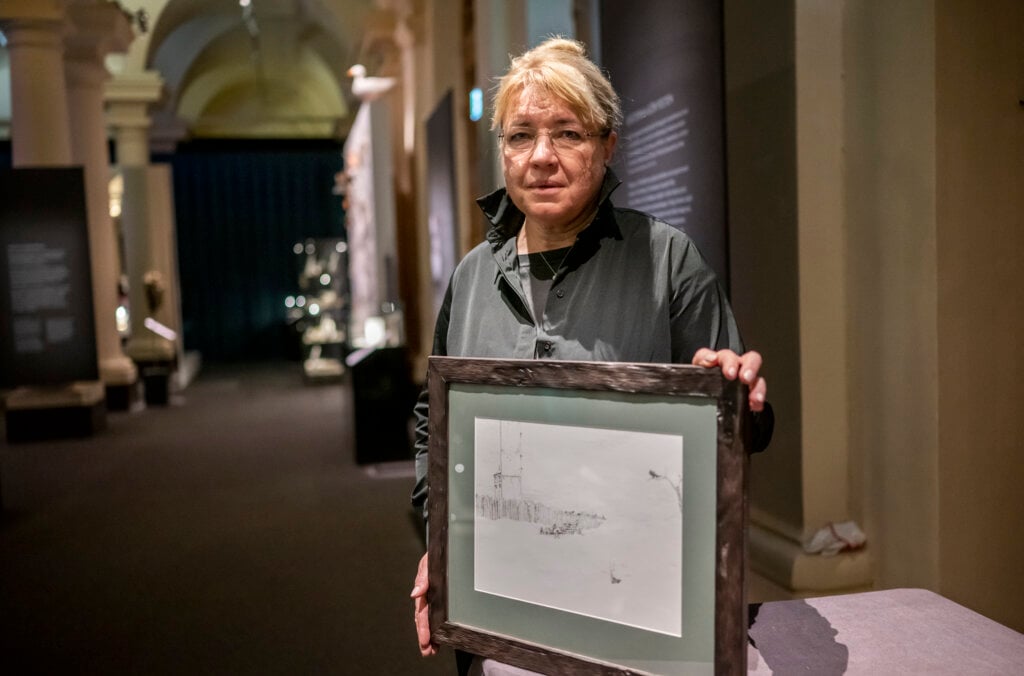Memorial
Interview
Interview, December 2022

Ms Elena Zhemkova, a representative from Memorial, with the museum object Memorial donated to the Nobel Prize Museum.
© Nobel Prize Outreach. Photo: Nanaka Adachi
Nobelprize.org interviewed Ms Elena Zhemkova, a representative from Memorial, about her hopes for the future. The interview took place on 12 December in Stockholm, Sweden, during the Nobel Week.
How does it feel to be awarded the peace prize?
We are very happy. We are very happy that the prize also has been awarded to our dear friends in Belarus and Ukraine. We think this is a very important sign the committee has given to the world – to give it to all three organisations to show that civil society needs to work together in the world. That is the most important thing for us.
Second, we think it is important that 35 years of our work has received an evaluation and it is a very good evaluation. Memorial is a network, it is many organisations together. It is a lot of people, including people that are no longer with us. This is also our wealth. We know that these people would be so proud.
What message would you like to convey as a laureate?
We think what is most important right now is that the whole world continues to fight for the right values. We think this is a very important time for good to fight evil. We are just ordinary people. We couldn’t have imagined that something like this could happen, that we would be playing an important role in something like this. We could never have imagined that as ordinary people we find ourselves in the middle of a war.
What can we as ordinary people do?
We can always remember that the human individual has their dignity and their rights. For us it is very important to remember the idea of Memorial. Justice and fairness are needed for everyone. It doesn’t matter if it is a good or bad person, victims should always receive compensation for their suffering. And the violators should know that they are going to be punished. That is what I would like the world to remember.
Every year we ask laureates to donate an object to the Nobel Prize Museum. Can you tell me about your object?
We are donating a painting depicting a prison camp in Siberia. It is important to understand that the prisoner that drew the painting was only 19 years old when he was arrested. The accusation against him was anti-Soviet propaganda and he received a sentence of eight years in prison camp in Siberia. This prison camp had very difficult conditions, it was very far away and it was a work camp. These kind of prison camps kill the spirit of the person and kill their talent. But this man’s talent wasn’t killed. You can see that he was a very special and unique talent. You can see that there is an element of dream but at the same time an element of reality, it is a prison camp. It is a symbol. It is a symbol of ruined life and talent. A symbol of loneliness and unfairness and a lack of freedom but at the same time hope. The peace prize is also symbolic. It is very difficult but it also gives you hope. We also received the prize at the same time as our friends from Ukraine and Belarus. We think it is very important that this will be in your museum.
This interview has been edited for length and clarity.
First published: March 2022
Nobel Prizes and laureates
Six prizes were awarded for achievements that have conferred the greatest benefit to humankind. The 12 laureates' work and discoveries range from proteins' structures and machine learning to fighting for a world free of nuclear weapons.
See them all presented here.
